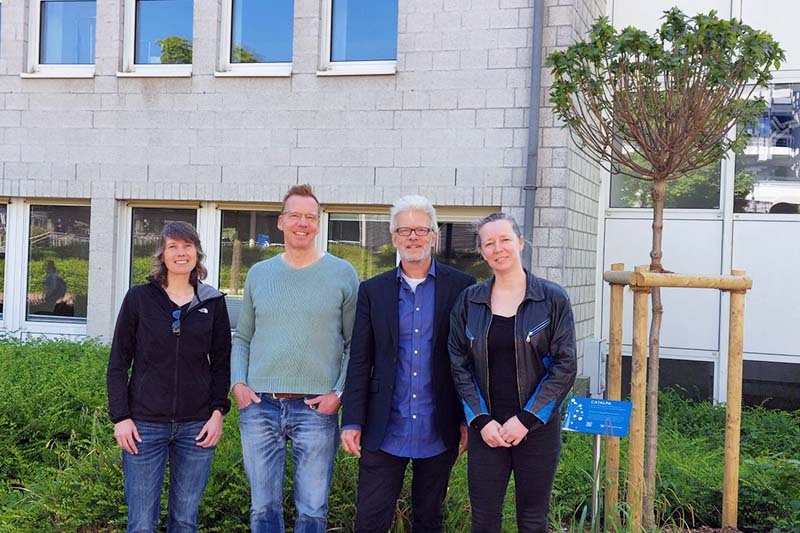News
Advisory Board certified CATALPA's impressive development
[19.05.2025]"Outstanding work in setting up CATALPA" and an "impressive development" - this was the verdict of the international Scientific Advisory Board at the annual meeting of the research center.
 Photo: CATALPA
Photo: CATALPA
For Prof. Dr. Dr. Friedrich W. Hesse, it was his last meeting as Scientific Director. On this occasion, he presented the committee with an overview of CATALPA's development from its initial temporary funding to its current status as a research center with permanent state funding. "To achieve a high profile in terms of content, we placed great importance on deliberately orienting and staffing the research professorships," Hesse said. With the addition of Prof. Dr. Torsten Zesch for Computational Linguistics, Jun.-Prof. Dr. Ioana Jivet for Learning Analytics, and Prof. Dr. Marcus Specht, a former Advisory Board member, for Learning Sciences, CATALPA now has a strong and well-established core team.
Inclusion in the Leibniz Research Network (LERN)
From the beginning, Hesse made sure that CATALPA met the same criteria applied to federally and state-funded research institutes.
Individual discussions with doctoral candidates
One of the key requirements is high-ranking publications, and CATALPA has proven to be very effective in this respect.
The development of CATALPA is also viewed positively by outside parties, according to Hesse. For example, the research center's inclusion in the Leibniz Research Network for Educational Potential (LERN) demonstrates this. LERN's task is to increase the Leibniz Association's visibility in educational issues.
At the beginning of April, Marcus Specht presented CATALPA at the network's general meeting, and its inclusion was unanimously approved. This brings the total number of institutions in LERN to 28.
Communicating national relevance even more strongly
FernUniversität President Prof. Dr. Stefan Stürmer emphasized the value of this positive external perspective for the university as a whole. "As a data university with regulations for learning analytics, we can offer unique research conditions that yield findings of general relevance," he said.
The advisory board members also viewed this integration positively. After Marcus Specht presented the status quo and his vision for his research professorship, the members retired for a final consultation on CATALPA. The conclusion: "We consider the locally developed methods, established structures, and educational policy anchoring to be very valuable," summarized Chairman Prof. Dr. Uwe Wilkesmann. To further develop CATALPA, the advisory board recommends emphasizing its overall relevance more strongly, e.g., in university research, transfer to other universities, and other (Leibniz) institutes.

